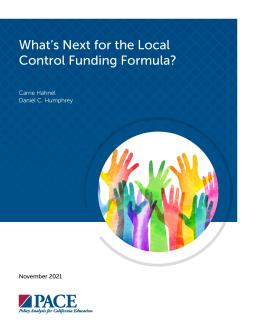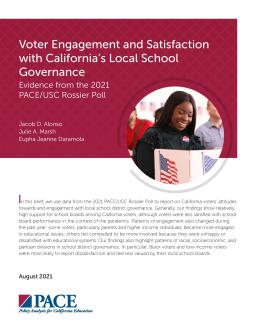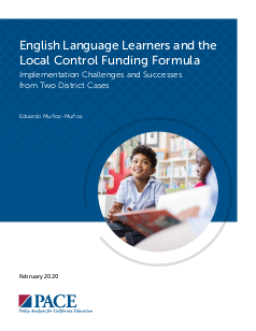Summary
This report examines California's Local Control Funding Formula (LCFF) after eight years and suggests refinements to improve equitable funding, opportunities, and outcomes. Based on interviews, research, and data analysis, the report identifies four areas for improvement: revisiting and refining the funding formula, modernizing funding for students with disabilities, equitably distributing effective teachers, and strengthening transparency, engagement, and accountability. LCFF has been viewed as an improvement over the previous system yet gaps between equity goals and local outcomes remain.
Summary
Summary
Summary
The Local Control Funding Formula (LCFF) in California was designed to increase flexibility, transparency, and equity in school districts. This report examines how Los Banos Unified School District and Chino Valley Unified School District used the LCFF to serve English Language Learners (ELLs). Both districts used the LCFF to create advocacy spaces and develop internal coherence to benefit ELLs with locally devised mechanisms and structures.



